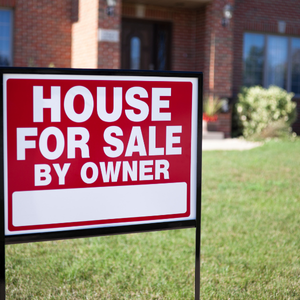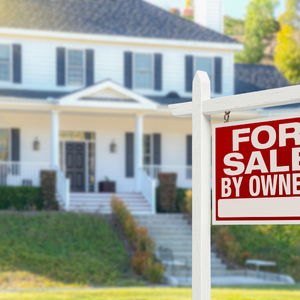
Understanding the Basics of Selling a Home by Owner
Successfully selling a home without a realtor in North Carolina’s real estate climate requires homeowners to master a series of critical practices that facilitate a seamless closing process. The FSBO homeowner’s first task is to obtain a solid grasp of current market dynamics, fair-market pricing, and the specific statutory disclosures mandated by North Carolina.
Determining a precise asking price is essential, as it influences both buyer engagement and the timeline to contract. Comparative property analysis—reviewing recently closed homes of similar size, location, and condition—typically provides the quantitative basis for a sound pricing decision. Equally important is the home’s physical presentation; systematic staging that accentuates sought-after attributes can create a persuasive first impression.
An effective marketing strategy is likewise imperative. High-resolution photographs, well-written property descriptions, and availability on major real estate portals should form the core of online exposure, while social media can amplify visibility to targeted demographics. Sellers must also compile the customary suite of legal paperwork: North Carolina’s residential property disclosure statement, the offer to purchase, and any addenda that may govern the sale.
Finally, confidence in negotiating price and contingencies, coupled with precise management of the closing timeline, positions the FSBO seller, with the guidance of Helping Home Solutions, to capitalize on North Carolina’s active market without intermediary representation.
Benefits and Drawbacks of Using FSBO Services and Tools
Selling your home directly—as a For Sale By Owner (FSBO) transaction—in North Carolina yields a mix of strategic upsides and practical obstacles. One foremost advantage is the opportunity to forgo the typical commission paid to real estate agents; these fees can absorb thousands of dollars and thus amplify your net sales proceeds.
FSBO service providers grant homeowners critical instruments such as Multiple Listing Service (MLS) access, digital marketing tools, and standardized legal documentation. Armed with these resources, sellers can manage the timeline of showings, negotiate directly, and minimize third-party intervention, which many homeowners find satisfying.
Nevertheless, several hurdles remain. Accurately positioning a property’s asking price requires market knowledge that most sellers lack; the result may be a listing that is either too low, sacrificing equity, or too high, risking prolonged market exposure.
The cumulative administrative burden also weighs heavily. Fielding buyer inquiries, drafting and executing contracts, and ensuring compliance with North Carolina’s disclosure laws can overwhelm sellers lacking real-estate acumen. Furthermore, the absence of a broad referral network may limit a property’s exposure, especially in a market characterized by rapid turnover and sharply defined buyer segments.
Even in light of these challenges, numerous sellers value the independence and financial efficiency that the FSBO approach offers, provided it is executed with deliberate planning and the strategic use of accessible resources.
Legal Requirements for Sale by Owner in North Carolina

When undertaking a For Sale By Owner (FSBO) transaction in North Carolina, a firm grasp of the statutory framework is essential for achieving a seamless transfer of title. Begin by consulting the state’s disclosure regime, which obliges sellers to furnish a Residential Property and Owners’ Association Disclosure Statement. This sworn disclosure comprehensively enumerates the property’s material defects and must be presented to prospective purchasers prior to the acceptance of any purchase offer.
In parallel, the seller is responsible for securing a valid septic system permit, where relevant, and must issue a lead-based paint disclosure if the residence was constructed prior to 1978. Although North Carolina does not mandate attorney involvement in FSBO sales, legal counsel can be invaluable for drafting enforceable purchase agreements and for vetting closing documents, thereby ensuring conformity with North Carolina’s real property statutes and safeguarding the seller’s legal rights.
Equally critical is an awareness of municipal zoning ordinances and the property’s standing with the tax assessor, as these factors can influence marketing strategy and the seller’s net proceeds. Compliance with these statutory and regulatory precepts will markedly enhance the likelihood of a prosperous FSBO transaction in the state’s dynamic residential market.
How to Prepare Your North Carolina Home for Sale
Successfully preparing your North Carolina home for sale by owner entails several strategic actions designed to captivate prospective buyers and to elevate your property’s standing in a competitive market segment. Begin with curb appeal, the visual invitation that greets every visitor and often determines the initial emotional response.
Refresh the landscaping, apply a new coat of paint to the front door, and ensure that every outdoor space, from the walkways to the porch, is tidy and welcoming. Turn your attention indoors by systematically decluttering and removing personal artifacts that might hinder emotional detachment; buyers should be able to imagine their lives in the space rather than be distracted by your memories. Undertake any deferred maintenance—tighten leaky faucets, replace cracked tiles—and conduct a complete cleaning, including carpets, windows, and appliances, to convey a message of meticulous care.
Reinforce the visual appeal by restraining bold color choices; a coat of light, neutral paint not only enlarges the sense of space but also broadens market appeal. Thoughtful staging, using tasteful furnishings, illuminates architectural strengths and invites prospective owners to linger. Finally, invest in professional photography; high-resolution images are not a luxury but a necessity in North Carolina’s digital marketplace, allowing your home’s best attributes to shine in every online listing.
Pricing Strategies for FSBO Homes in North Carolina
When marketing your residence independently in North Carolina’s real estate market, strategically positioning the asking price is foundational to captivating prospective buyers and closing the transaction successfully. As a For Sale By Owner (FSBO) seller, begin with a meticulous review of prevailing neighborhood price trends and the most recent closed sales of similar properties to establish a defensible listing price.
Leverage online pricing calculators alongside the counsel of a certified appraiser with North Carolina familiarity to verify that your initial figure is both competitive and appealing. An appropriately calibrated asking price prevents the property from becoming stagnant while ensuring that its presentation is optimized for prospective buyers.
Recognize that North Carolina’s geopolitical and economic diversity means that price sensitivity may differ from one community to another; therefore, your pricing approach should be customized to local market signals. Entering negotiations with a predetermined price floor may still permit some latitude, increasing attractiveness without eroding your overall financial efficacy.
Successful FSBO practitioners routinely recalibrate their pricing in response to buyer feedback gathered during showings or in reaction to broader market shifts, illustrating the degree of adaptability and attentiveness that is essential in a fluid real estate marketplace.
Crafting a Compelling Real Estate Listing Description
To write an outstanding real estate listing when selling your home By Owner in North Carolina’s busy market, start by spotlighting what makes your property special. Lead with a lively opening that pulls readers in with key facts: prime location, square footage, and distinctive design.
Paint a clear, vivid picture of both inside and out. Highlight features that set your home apart, like gleaming hardwood floors, a modern kitchen, or an expansive backyard. Sprinkle in local search terms that North Carolina buyers often use, increasing your listing’s chance of being seen online.
Point out how close the property is to important amenities—schools, parks, shopping, and transit—appealing to the lifestyle buyers are after. Keep the description tight, striking a balance between emotional draw and solid data on the home’s worth and future possibilities.
Thoughtfully crafted and centered on your property’s distinctive qualities, your listing can capture attention and connect meaningfully to buyers on the lookout for their perfect North Carolina home.
Negotiating Offers When Selling Your Home by Owner
Successfully negotiating offers when selling your home by owner in North Carolina requires deliberate strategy, particularly in the state’s current competitive market. As the seller, your ability to assess each proposal—not just its headline price, but also its accompanying contingencies—directly influences your net proceeds.
Begin by grounding yourself in recent local market indicators; this insight will clarify whether an offer is competitive or if there is room for improvement. Timely, transparent communication with prospective buyers is essential; equally important is your ability to convey realistic expectations regarding the anticipated closing schedule.
A firm grasp of standard contract provisions empowers you to formulate confident counteroffers, safeguarding your objectives without alienating motivated purchasers. Concurrently, you should familiarize yourself with North Carolina’s distinctive real estate statutes, as they may impose specific procedural requirements during the negotiation phase.
Finally, consider leveraging the distinctive attributes of your home—such as recent renovations or unique lot features—while also remaining open to flexible settlement dates. Such tactics can bolster your negotiating stance and simplify the process of closing the transaction on your desired terms in this dynamic marketplace.
Navigating the Paperwork: Contracts and Disclosures in NC FSBO Sales
Selling your home without an agent in North Carolina’s market necessitates careful management of contracts and state-specific disclosure forms. The cornerstone of this process for—for-sale-by-owner (FSBO) sellers—is the Offer to Purchase and Contract document, which delineates the vital elements of the sale, including the offered price, the anticipated closing date, and any contingencies which may apply.
North Carolina further requires sellers to furnish prospective buyers with several mandated disclosures. Foremost among these are the Residential Property Disclosure Statement and the Mineral and Oil Rights Mandatory Disclosure Statement. The former summarizes the home’s physical condition, while the latter addresses the ownership status of any subsurface mineral rights, ensuring buyers are fully apprised of any material influences on the property’s value.
For homes built before 1978, sellers are additionally obligated to present a lead-based paint disclosure, a safeguard aimed at safeguarding health and minimizing exposure to hazardous materials. Familiarity with these legal instruments is essential not only for statutory compliance but also for mitigating risk and fostering mutual trust in the sale.
To navigate the nuances of these documents, prospective FSBO sellers are encouraged to seek the counsel of a qualified real estate attorney or a licensed professional. Such advisors can verify that forms are completed correctly and that the sale adheres distinctly to North Carolina’s regulatory framework governing unrepresented property transfers, while also exploring opportunities to sell your home for cash in Grimesland or nearby cities.
Understanding the Role of Real Estate Attorneys in FSBO Transactions

When selling your property by owner (FSBO) in North Carolina, recognizing the necessity of real estate attorneys is fundamental. Within the state’s real estate landscape, the attorney’s engagement is mandatory for several elements of the sale, not merely an expedient recommendation.
Attorneys survey and prepare essential legal documents—among them, the deed, the purchase agreement, and the closing forms—verifying conformity with state statutory requirements. They conduct an exhaustive title examination, certifying that the property’s title is free of liens or encumbrances, an affirmation that is critical for an untroubled transfer of title.
Attorneys administer the escrow account, controlling the earnest money deposit and directing the disbursement of funds at closing. They are integral in formulating and negotiating contractual provisions that defend your interests as the seller.
Furthermore, the attorney is an essential adviser should legal complexities or disputes surface during the transaction. Given that North Carolina mandates an attorney-escorted closing for every transfer of real property, their legal acumen guarantees that every statutory obligation is fulfilled in an orderly manner, thereby protecting all parties in the FSBO sale.
How to Handle Inspections and Appraisals as an Independent Seller
When selling your home independently in North Carolina’s real estate landscape, effectively managing inspections and appraisals is vital for attracting serious buyers. Familiarizing yourself with the state’s inspection protocols is the first step; understanding the timeline, required disclosures, and your rights as a seller enables you to prepare your home comprehensively.
Prior to the inspection appointment, ensure that the house is easily accessible and in its best possible condition. Examine common focal areas—plumbing, electrical systems, and the roof—for visible concerns and address any minor leaks or worn fixtures that could otherwise raise questions. Engaging a licensed home inspector before the buyer’s visit allows you to identify potential deal-breakers, permitting you to either rectify or disclose issues that could otherwise undermine buyer confidence.
In parallel, recognizing the appraisal process is equally important. Familiarize yourself with current neighborhood pricing dynamics; the North Carolina market may exhibit seasonal variations and differing absorption rates that directly affect value. Compile a concise dossier of recently sold comparable properties, highlighting key characteristics and sale prices, to substantiate your listing price and strengthen your negotiating position.
Transparent communication with prospective buyers is essential. Document any repairs performed and provide receipts or warranties where applicable; such disclosures signal diligence and foster buyer trust. By remaining organized, responsive, and proactive, you will lead inspections and appraisals toward favorable outcomes that support your objective of a successful sale without Realtor representation.
Closing Process Overview for FSBO Sellers in North Carolina
Successfully navigating the closing process as a For Sale By Owner (FSBO) seller in North Carolina requires a methodical approach and a firm grasp of state-specific regulations. After accepting a purchase offer, the next phase centers on the due diligence period, during which the buyer will arrange property inspections and solidify mortgage financing.
As the seller, you must complete and deliver the requisite disclosure forms with precision and timeliness, addressing any known defects in the structure, zoning, or title. Under North Carolina law, the closing must be overseen by a licensed attorney; thus, enlisting an attorney with experience in residential transactions is critical. The attorney will supervise escrow accounts, analyze closing paperwork, and supervise the transfer of title.
You will collaborate closely with your attorney to ensure that the deed, closing disclosure, and any mortgage release documents are drafted, executed, and filed correctly. On the scheduled closing day, you and the buyer will execute the remaining papers. When all documents are authenticated and funds are disbursed as directed, title to the property formally passes to the buyer in accordance with North Carolina statutes, giving you the opportunity to sell your home for cash in Greenville or nearby cities.
Mastering these process points will enhance the likelihood of a seamless sale, even in a highly competitive housing market.
Tax Implications of Selling Your Own Home in North Carolina
When choosing to sell your North Carolina home without professional representation, due diligence regarding tax matters can prove vital. Profits realized from the sale could attract federal capital gains taxes. Nevertheless, homeowners who have occupied the residence for at least two of the preceding five years gain federal benevolence: a capital gains exclusion of $250,000 for individuals and $500,000 for married couples filing jointly.
Even though North Carolina forgoes a separate state capital gains tax, the gain may still feed into your state income tax computations. Precise recordkeeping relating to the home’s original purchase price and any capital improvements is therefore advisable, for such documentation may adjust the gain subject to tax. Engaging a tax advisor versed in both federal and North Carolina statutes can yield a tailored strategy and help maintain compliance as you navigate the complexities of a for-sale-by-owner transaction in the state’s competitive market.
Common Mistakes to Avoid When Selling a House by Owner
Homeowners selling their residences directly in North Carolina frequently encounter missteps that jeopardize their transactions. This is especially true when selling a fixer-upper, where unique challenges can complicate the process. A primary misjudgment lies in pricing the property inaccurately. An inflated figure not only repels interested parties but also extends marketing time, which can stigmatize the listing in the eyes of the market.
Thoroughly evaluating recently sold comparable homes and attuning oneself to prevailing market indicators are vital exercises in determining an equitable asking price. Equally important is a robust marketing strategy; the absence of professional-grade collateral may restrict exposure to a limited cohort of prospective buyers. Investing in a well-composed suite of high-resolution photographs, coupled with listing the home on multiple digital platforms, is advisable to broaden reach.
Sellers may overlook less visible but equally critical tasks, such as addressing deferred maintenance and thoughtful staging. Neglected minor repairs or a disorganized presentation can sway buyer perception unfavorably during a showing. The legal dimension warrants equal diligence; missing vital documents or incorrectly completing disclosure statements can culminate in unresolved liabilities or litigation.
Additionally, the seller’s schedule can become an inadvertent barrier; restricted availability for private tours may forfeit engagements with motivated, qualified buyers. Collectively, understanding and pre-emptively addressing these hazards is essential for any homeowner determined to succeed in North Carolina’s dynamic real estate marketplace.
Success Stories: Learning From Other FSBO Sellers’ Experiences
Homeowners across North Carolina have successfully sold their properties independently by assimilating the collective wisdom of prior sellers. A careful study of these narratives provides prospective sellers with practical techniques for maneuvering effectively through the state’s competitive real estate climate.
Those who have reached their sales objectives unanimously underscore the significance of meticulous groundwork and data-driven analysis. Mastering local market dynamics, calibrating the asking price against recently closed comparables, and curating interior and exterior presentation for maximum buyer attraction consistently emerge as foundational components.
Moreover, harnessing digital advertising channels and social media allows sellers to broaden their reach while forgoing conventional brokerage services. Seasoned FSBO practitioners advise maintaining transparent dialogue during price discussions and compiling the requisite contractual documentation in advance to expedite a seamless closing, especially for those planning the next stage after selling, moving out of state.
Absorbing these insights empowers homeowners to engage the FSBO route with increased assurance in North Carolina’s energetic property market.
Is It Better to Use a Realtor or Sell by Owner?

When deciding whether to engage a realtor or to sell your home independently in North Carolina’s real estate climate, a careful examination of the benefits and drawbacks of each method is essential. Marketing your property on your own—commonly known as FSBO, or For Sale By Owner—eliminates the customary 5 to 6 percent commission usually payable to a real estate agent. These savings may be especially appealing in North Carolina’s fast-moving market, where narrow margins can significantly influence the final sale price. Nonetheless, the FSBO approach shifts the entire process onto your shoulders, requiring you to produce effective advertising, negotiate terms, file all legal documentation, and coordinate property showings.
Realtors, conversely, inject considerable value through their acumen in market analysis and their access to the multiple listing service, as well as their expansive professional networks. They can price the home competitively, expose it to a wider audience, and mitigate the legal and procedural risks of the sale. Furthermore, agents are well-versed in the disclosure mandates and transaction specifics unique to North Carolina, enabling a smoother and legally-compliant transfer.
Ultimately, opting for FSBO may afford you heightened autonomy and the prospect of greater profit margins when executed flawlessly. Engaging a realtor, on the other hand, yields the reassurance of seasoned guidance and the strategic handling of transactional complexity—advantages that some sellers may find outweigh the commission savings, particularly in a market as dynamic as North Carolina’s.
Do You Need a Lawyer to Sell a House in NC?
When planning to sell a home by owner in North Carolina, one of the pivotal considerations is the involvement of legal counsel in the transaction. North Carolina statutes do not compel a homeowner to hire an attorney, yet the overwhelming consensus among industry professionals is that the presence of a lawyer is advisable and, in many cases, prudent.
Counsel is particularly effective at drafting and critically examining purchase agreements, thereby guaranteeing that all provisions adhere to North Carolina’s substantive and procedural requirements; this safeguards the seller against unintended liabilities. Even competent sellers may encounter legal hazards that transcend the competencies of typical marketing or negotiation tasks. An attorney’s vigilance substantially reduces the chances of encountering difficulties that could impede the closing process.
Sellers encounter a number of statutory disclosure mandates that, if mishandled, could expose them to civil damages or, at the least, postpone conveyance. Likewise, the examination of the title, the resolution of homeowner association covenants, and confirmation of zoning compliance merit the careful scrutiny of legal counsel. In a competitive market characterized by rapid transactions, such consultations became integral to maintaining transactional certainty and protecting the seller’s equity.
Thinking about selling your home For Sale By Owner (FSBO)? Helping Home Solutions makes it simple by offering fair cash offers, handling all the details, and helping you sell quickly without costly repairs or unnecessary stress. Contact us today at (252) 541-7149 for a no-obligation cash offer and take control of your FSBO sale with confidence.
Helpful North Carolina Blog Articles
- Guide To Selling Your Home By Owner In North Carolina
- Understanding North Carolina Inheritance Laws
- Sell Your Home In Foreclosure In North Carolina
- Selling A House With Unpermitted Work In North Carolina
- Closing Costs Without A Realtor In North Carolina
- Mastering Contingencies In North Carolina Real Estate Sales
- Selling A Hoarder House In North Carolina’s Real Estate Market
- Understanding Squatters Rights In North Carolina
- How To Successfully Sell Your House With Tenants In North Carolina

| TAR HEEL STATE | GUARANTEES | RALEIGH | RALEIGH’S | RALEIGH, NC | HOUZEO |
| ASHEVILLE | MORTGAGE LOAN | MORTGAGE LENDER | ICON | LENDER | ADVERTISERS |
| REAL ESTATE CONTRACT | THE TRIANGLE | THE TRIANGLE | RALEIGH-DURHAM, NC | REALTY | RALEIGH REALTY |
| THE NATIONAL ASSOCIATION OF REALTORS | NAR | CREDIT | CASH | MOUNTAIN | MARKET ANALYSES |
| HOMEOWNERS ASSOCIATION | HOA | THE UNITED STATES | U.S. | HOUSE PRICE | REAL ESTATE VALUATION |
| HOME STAGING | HOME STAGER | HOME INSPECTION | FLAT FEE | BEST REALTORS | |
| WALL STREET | U.S. NEWS | WALL STREET JOURNAL | PURCHASE AND SALE AGREEMENT | HOMEBUYERS | NICE |
| INTERNET DATA EXCHANGE | FORBES | BROKERAGE | BROKERAGE FIRMS | BLOG | BANK |
| IN REAL ESTATE | BY OWNER FSBO | A FLAT FEE | ON THE MLS | BUYERS AND SELLERS | BUYER AND SELLER |
| THE BUYER AND | AN ATTORNEY TO | HOUSE IN NORTH CAROLINA | HOME ON THE MLS | SALE BY OWNER FSBO | FOR A FLAT FEE |
| HOUSE WITHOUT A REALTOR | THE BUYER AND SELLER | NORTH CAROLINA RESIDENTIAL PROPERTY |
